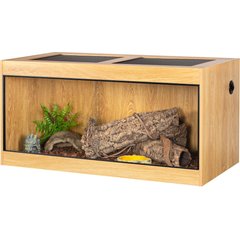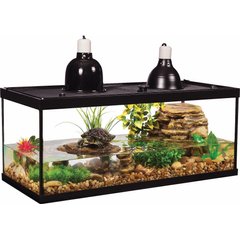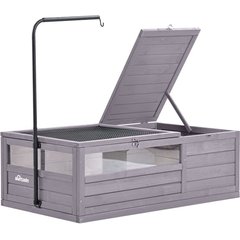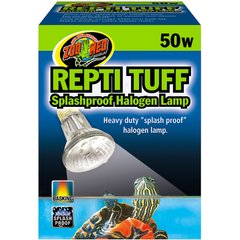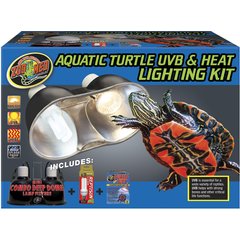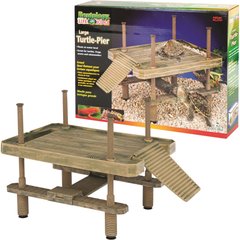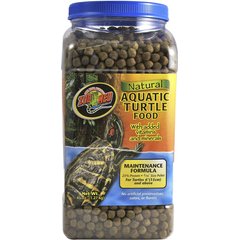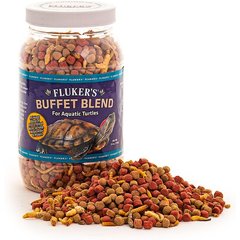Pet Turtles 101: A Beginner’s Guide to Keeping Turtles and Tortoises

Photo by Belikart/iStock/Getty Images Plus
With their stunning patterns, large eyes and little feet, plus their slow movements, lovable personalities and incredible longevity, it’s easy to see why turtles make fascinating pets. But what’s the best way to care for them? We spoke with veterinary experts about every aspect of basic pet turtle care, from diet and habitat to what to do when they’re sick.
Turtles and Tortoises: Overview
Order: Testudines (or Chelonia)
- Turtles (aquatic, semi-aquatic)
- Family: Emydidae
- Size: 3.5-12 inches, depending on the species
- Lifespan: 20-60+ years
- Tortoises
- Family: Testudinidae
- Size: 4 inches to 6 feet, depending on the species
- Lifespan: 25-100+ years
Fun Turtle Facts
- Many pet turtles live a very long life. Some tortoises have lived to over 100 years old!
- Turtles have a good sense of hearing and are able to recognize their keepers.
- Turtles can see in color and prefer to eat colorful food items.
- Turtles in cold places can slow their heart and metabolism down during the winter. This decreases their need for oxygen, so they can spend the entire winter living beneath the ice of a pond.
- The easiest way to tell the difference between a turtle and a tortoise is that turtles are water-dwelling creatures with webbed feet or flippers, and tortoises are land-dwelling creatures with more elephantlike feet. Most turtles are more omnivorous (feeding on both plant and animal sources), while generally all tortoises are herbivorous (eating plant sources only).
Turtle and Tortoise Supply Checklist
- Tank or enclosure
- UVB light
- Basking light
- Basking dock
- Heat lamp
- Infrared thermometer
- Aquarium water heater
- Canister water filter
- Siphon
- Tank substrate
- Water conditioner
- Water test kit
- Tank decor
- Turtle food
Additional items for tortoises:
- Humidity control
- Food dish
- Calcium supplement
- Multivitamin
- Screened lid
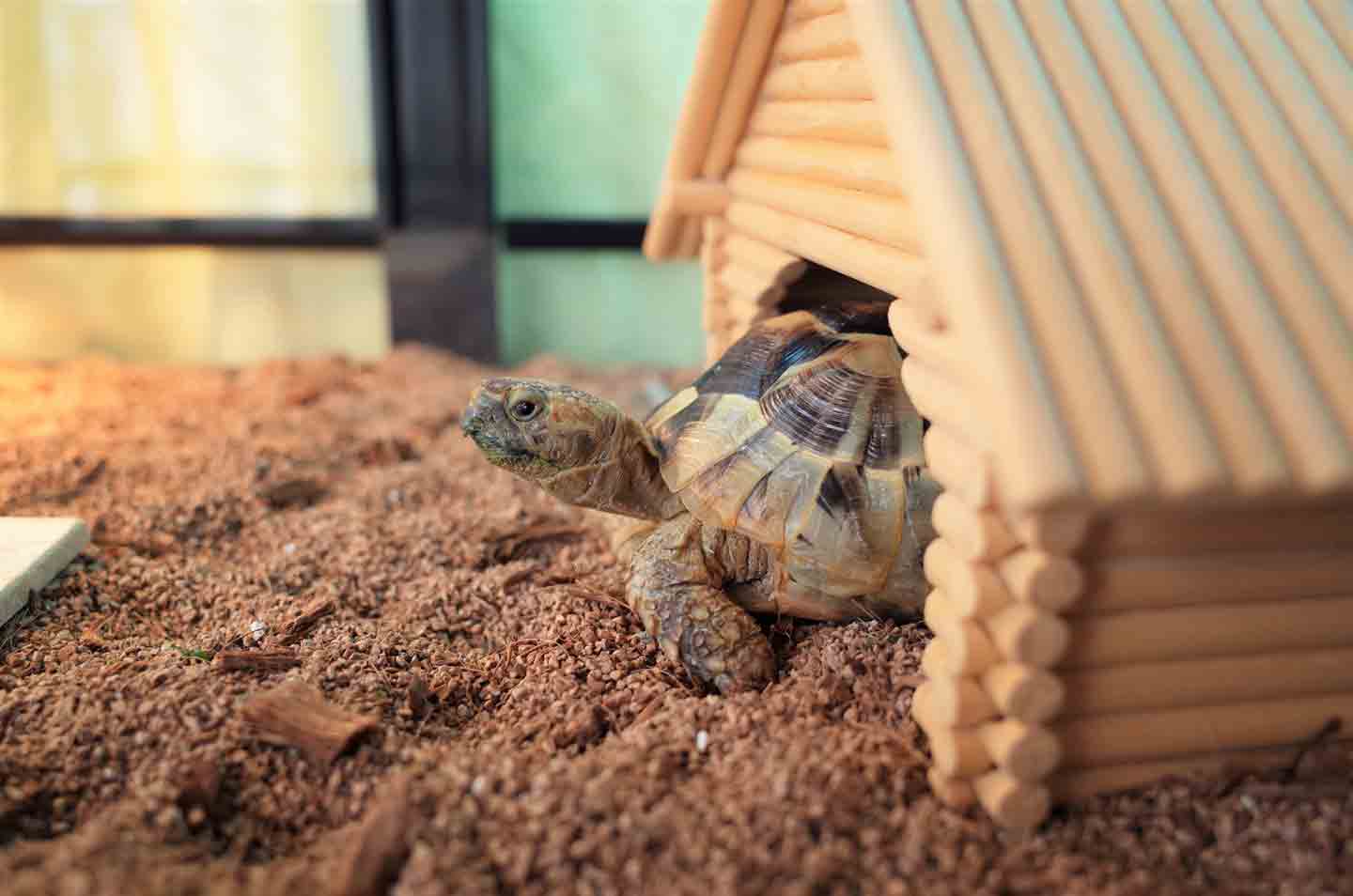
polygonplanet/iStock/Getty Images Plus
Habitat
A turtle’s habitat requirements vary depending on their species. Price Dickson, DVM, a veterinarian specializing in birds and reptiles at My Pet’s Animal Hospital in Lakeland, Florida, provides an overall guideline for slider turtles (e.g., species like red-eared slider turtles and yellow-bellied sliders), who get their name from the way they slide into the water to escape predators. She adds that most aquatic and semi-aquatic turtles also do well with these guidelines.
Important note: Different species of turtles and tortoises have different care requirements. Research your pet’s species and speak with your vet to ensure you’re providing everything they need to be healthy and happy.
Enclosure
Smaller turtles can be kept in an indoor aquarium tank, whereas larger turtles do well outside in a fish pond, where they can get natural sunlight, Dr. Dickson says.
It’s important that turtles have plenty of room in their tank. For smaller turtles, the ideal tank size is 10 gallons (38 liters) of water per inch of shell length. So, a 4-inch turtle would need a 40-gallon tank.
Have concerns about your turtle escaping? Fortunately, this isn’t much of a risk for indoor turtles, Dr. Dickson says. “They can’t climb steep, glass siding. So, as long as the water and basking area are more than a turtle-length from the top of the tank, they are unlikely to get out,” she explains.
Outdoor turtles, however, are at a great risk of escaping. To prevent the chances of this happening, make sure that the pond they’re in is fenced in. The fence should be two to three times higher than the turtle’s length and extend below the soil line, as turtles can dig.
Recommended Products
Bedding
The type of bedding or substrate you choose to get for your pet turtle will depend on how you’d like to set up their tank.
“The easiest is a large stone or gravel that is too large to fit in the turtle’s mouth,” Dr. Dickson says. Size matters here, because turtles may try to swallow their bedding, which can lead to medical problems. Using stones that your turtle literally can’t ingest eliminates that risk.
Light and Decor
Essential decor for pet turtle tanks includes a dock and a UVB light, Dr. Dickson says.
- A UVB-producing light should be placed over the dock. Turtles need UVB light so their body can produce vitamin D. The light also acts as a heat source so turtles can warm up. “As cold-blooded animals, keeping warm ensures that they can digest their food and that their immune system functions,” Dr. Dickson explains.
- A dock allows pet turtles to haul themselves completely out of the water and dry off. They also love to have a platform for basking in their UVB light.
Decor to avoid placing in your turtle’s tank includes anything that they could easily swallow, such as plastic plants with small leaves, which can be mistaken for food.
Recommended Products
Heat Lamp
A heat lamp is important for pet turtles to bask and maintain their body temperature, Dr. Dickson says. The strength of the lamp depends on how far away it is from the turtle.
Infrared Thermometer
To assess the actual temperature of the basking area, Dr. Dickson recommends an infrared thermometer. Once you know the temperature, you can move the heat lamp closer or get a stronger one, if needed. Most semi-aquatic turtles like basking temperatures of 85-95 degrees Fahrenheit.
Cleaning
Dr. Dickson says a pet turtle tank needs a complete water change every week or two—but that alone isn’t enough. Because turtles are messy—they eat, pee and poop in their water—they also need a strong canister water filter. A water conditioner should also be used to eliminate the chlorine in the tap water.
In addition to weekly tank cleanings, the filter needs to be cleaned every two to three weeks with a turtle-safe cleaner. The substrate should also be agitated (mixed up) and cleaned using a siphon during water changes to remove waste, and the tank walls cleaned of algae, Dr. Dickson advises.
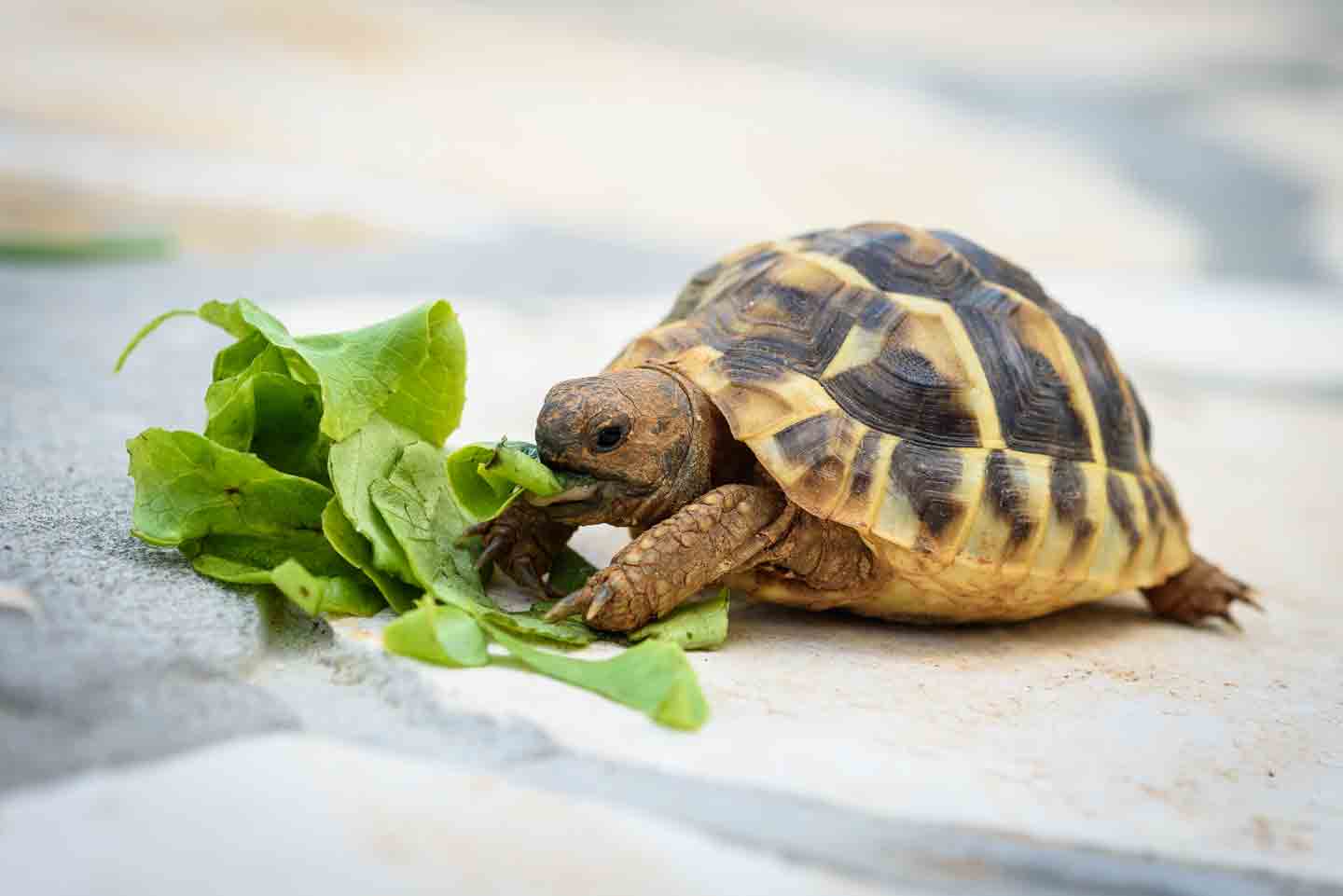
_jure/iStock/Getty Images Plus
Diet
What Do Turtles Eat?
Many turtle species are omnivores and benefit from a varied diet, Dr. Dickson says. “The more variety, the better!”
A young turtle’s diet should consist of about half protein and half vegetables. The vegetables should be chopped up into small pieces and sprinkled into the water, Dr. Dickson says.
She encourages pet parents to feed as much as their turtle will eat in 5-10 minutes, then scoop out the rest with an aquarium net. While it may be tempting to try to feed them in their basking area, Dr. Dickson says they must be fed in water, as they won’t eat anywhere else.
This can make giving powder supplements tricky. The good news is that most pet turtles won’t need supplements if you offer a balanced turtle pellet alongside their regular food every other day. Tortoises, on the other hand, typically need calcium and sometimes multivitamins as well. Talk to your veterinarian if you think your turtle needs additional nutrients, or if you’re concerned about their diet or how much they’re eating.
Sources of animal protein for turtles can include:
- Worms
- Crickets
- Shrimp
- Snails
- Optional: Live fish (Dr. Dickson says not every turtle will want to make the effort to catch them.)
As for vegetables, nearly all leafy greens are safe, Dr. Dickson says. These can include:
- Mustard greens
- Dandelion greens
- Collard greens
- Carrot tops
- Romaine lettuce
How Often To Feed Your Turtle
What you feed your turtle and how often will vary depending on their life stage.
- Baby turtles: Feed daily, and clean away any uneaten food after 5-10 minutes to maintain the cleanliness of their tank.
- Adult turtles: Feed every 2-3 days to prevent unwanted weight gain.
Dr. Dickson recommends feeding multiple brands of turtle pellets rotated weekly, as research is still ongoing as to the perfect nutrient requirements and each brand has a different blend.
Recommended Products
Water Requirements
Turtles don’t need a separate drinking source due to living in water, which should be kept clean and filtered, Dr. Dickson says.
Unlike some reptiles, turtles have a bladder and urinate. Because of this, nitrogen from their urine can build up in their water. When doing a water change, it’s important to test the water quality to keep your turtle’s tank in a healthy condition. (More on that below.)
“Testing the water quality makes sure that harmful waste products aren’t building up in the water,” Dr. Dickson says. “This also makes sure that the water filter is operating appropriately, as turtles are very messy and dirty their water quickly.”
Follow the instructions on your water test kit, and ask your veterinarian if you have any questions about your results.
Harmful Foods for Turtles
Although turtles can enjoy a variety of vegetables, fruits, live food and plants, there are some foods they should never eat.
Examples of common foods that are bad for turtles include:
- Avocados (leaves and seeds)
- Garlic
- Onions
- Toxic insects, such as fireflies
Dr. Dickson advises against feeding your turtle any wild-caught insects, as they can contain pesticides or toxic plant material.
Handling
When handling turtles, it’s always best to pick them up slowly with both hands and hold them firmly from the sides between their front and back legs, says Doug Mader, MSc, DVM, a triple board-certified veterinary specialist and author of “The Vet at Noah’s Ark.”
He encourages turtle keepers to be careful when handling their pet, as some turtles have sharp claws and may accidentally scratch if they struggle. Additionally, they may bite if fingers are near their mouth or head.
He also points out that it’s important to never turn your turtle upside down when handling them unless it’s absolutely necessary. Being turned upside down is stressful for turtles and can damage their internal organs.
“Once a turtle gets to know the pet parent, they will not struggle to get away and will remain calm during handling,” Dr. Mader says. He adds that a turtle’s shell is very sensitive, and they actually relish being petted and scratched. (Try using a soft brush on their shell!)
A major concern with turtles is that they can carry salmonella, a type of bacteria that can pose a significant risk of infection and illness when transmitted to humans. Dr. Mader says proper handling of turtles and appropriate hygiene practices like handwashing can be effective in preventing the spread of salmonella.
Still, Dr. Mader says turtles shouldn’t be given to very young children and others who may have chronic health issues. Consult your family physician to learn if a pet turtle is safe for your child.
Health
Signs of a Healthy Pet Turtle
Knowing the signs of a healthy turtle is essential to being able to tell how your scaly pal is feeling.
Signs of a healthy turtle, according to Dr. Mader, include:
- Clear eyes with a sparkle
- A pink oral cavity
- A clean nose
- Healthy-looking skin
- A clean, hard shell
- Clean, sharp toenails
- Healthy feces (whitish, chalky urate and a dark brown, pasty fecal pellet for turtles; firm, brown feces for tortoises)
- A body weight within their species’ normal range (according to your veterinarian)
- Active
- Walks upright lifting their body off the ground with nice, high steps (i.e., not dragging themselves along the ground)
Common Health Problems in Pet Turtles
Common health problems in pet turtles include:
- Severe nutritional diseases due to an unbalanced diet
- Swollen eyes from a lack of sufficient vitamin A
- Soft shells from a lack of vitamin D and calcium
- Internal parasites and systemic illness due to dirty, unsanitary living conditions and poor water quality
When To See Your Vet
Turtles “are masters at hiding signs of illness,” Dr. Mader says, “and when they get sick, it usually progresses slowly over a long period.”
Signs of an ill turtle can include:
- Nasal discharge
- Swollen, puffy eyes
- Eyes constantly being shut
- Bubbles from the nose
- Open-mouth breathing
- Swollen ears
- Lethargy
- Decrease in or loss of appetite
- Not walking upright
- Diarrhea
- A soft shell
- Floating unevenly in the water
Dr. Mader recommends that pet turtles get yearly checkups for regular physical examinations. This will consist of monitoring your turtle’s weight, fecal testing for parasites and, if needed, blood work or other laboratory testing.
The best way to find a turtle vet is to visit the Association of Reptile and Amphibian Veterinarians website, select the “Find a Vet” tab (under For Owners) and choose from a list of reptile vets near you.
Choosing a Pet Turtle
Despite the popular belief that turtles are low-maintenance pets, they actually require just as much care as any other pet. Before adopting or purchasing a turtle, Dr. Mader says there are some factors to consider:
- Lifespan: Turtles have a long lifespan and are a long-term commitment. Depending on the species, they can live up to a few decades and, for some tortoises, 100 years or more!
- Size: Although all turtles start small out of the egg, they’ll need adequate space to stay happy and healthy when they’re growing and fully grown. Some pet turtle species can grow to be around—and over—100 pounds!
- Diet: A turtle’s diet can vary depending on their species, with some solely enjoying veggies and others requiring fish or other animal protein. Consider the dietary needs of the type of turtle you’re looking to keep, to ensure a proper diet.
Dr. Mader says the following species make good options for beginners:
| Aquatic Turtles | Land Tortoises |
|---|---|
| Red-eared sliders | Greek tortoises |
| Painted turtles | Red-footed tortoises |
| Yellow-bellied sliders | Hermann’s tortoises |
FAQs About Pet Turtles
Do turtles make good pets?
Do pet turtles like to be held?
How long can pet turtles live?
Are turtles or tortoises better pets?
It’s vital to research the kind of care an exotic pet like a turtle needs to thrive. Because there are multiple species of turtles to choose from, consider which best fits your preferences and is most compatible with your lifestyle, no matter whether it’s a terrestrial (land), semi-aquatic or aquatic pet turtle.
Need a name for your new pet? Check out our list of the best turtle names.
Expert input provided by Price Dickson, DVM, a veterinarian specializing in birds and reptiles at My Pet’s Animal Hospital in Lakeland, Florida; and Doug Mader, MSc, DVM, a triple board-certified veterinary specialist and author of “The Vet at Noah’s Ark” in Big Pine, Florida.
This content was medically reviewed by Chewy vets.
